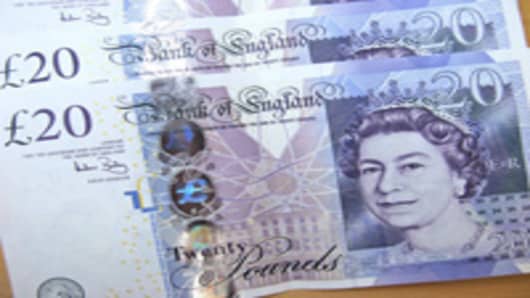The onus of UK macroeconomic policy falls on the Bank of England. George Osborne, chancellor of the exchequer, has nailed his colours to the mast of fiscal discipline instead.
Whatever wheezes appear in next week’s Budget are likely make little difference to immediate performance, as my colleague, Chris Giles, pointed out last week. This does not make the Budget unimportant. As Paul Johnson, director of the Institute for Fiscal Studies, has also noted, a tax system devoid of principles and rife with gimmicks is unpredictable and so a source of damaging uncertainty. But that is, alas, unlikely to change.
The big macroeconomic doubt is whether “quantitative easing" works. The sums involved are startling. At the end of its third round of asset purchases, the BoE will own 325 billion pounds ($510.5 billion)of financial assets, predominantly government bonds (or gilts), which it will have bought with newly created money. It will own close to a third of the gilt market.
Yes, this is monetisation. So is it effective? Is it even dangerous?
The BoE’s view is that QE is a natural extension of monetary policy, necessary when the short rate is 0.5 percent, the lowest rate in the 318 years of the BoE’s existence. With conventional measures exhausted, the BoE, like the Federal Reserve and the European Central Bank, has been driven to try highly unconventional measures instead.
The BoE argues that asset purchases work by restoring confidence, signalling future policy, forcing rebalancing of portfolios, improving liquidity and increasing the money supply when the standard mechanism – lending by banks – has frozen. Overall, suggests the BoE’s analysis, the initial QE of 200 billion raised gross domestic product by 1½-2 percent and inflation by ¾-1½ percent. If so, it prevented a “double dip” recession, while worsening already high inflation – a reasonable trade-off. If the subsequent QE of 125 billion pounds, agreed in October 2011 (75 billion pounds) and February 2012 (50 billion pounds) has a proportionate impact, it might amount to 1-1¼ per cent higher GDP – nice to have, but not decisive. It is striking just how much the central bank has to do to when aggregate demand, credit supply and corporate confidence are all so battered.
A valid concern over effectiveness, is that the BoE’s policy does not help small and medium-sized enterprises. Understandably, that has been a topic of heated discussion before the Treasury Committee of the House of Commons. The BoE argues that it is up to the Treasury to take credit risk. The situation in the US and the euro zone is different: treasuries are hamstrung. The BoE’s position is surely reasonable. If the government is to take credit risk, it should do so under a legislated and worked-out scheme.
Is the policy dangerous? A familiar hysteria is that QE has put the UK on the path to hyperinflation. If so, the concern is not that QE’s effect would be too small, but that it would be both huge and impossible to reverse in a timely manner. Neither view seems to make sense. In a contemporary banking system, no one-to-one relation exists between reserves and lending. If only it did! A recovery would then be quite simple to engineer. Once lending does finally recover and it becomes appropriate to tighten monetary policy, then QE can be readily reversed, by letting some of the gilts mature and selling others back to the market. This is why the BoE should keep the gilts rather than let them be cancelled. To say this policy is too dangerous is like saying that chemotherapy is too dangerous. Dangerous conditions demand bold therapies. The fear that these cannot be managed is a counsel of despair.
A different argument is that the policy is unfair, because it harms the prudent savers. Yet all monetary policy has distributional effects. These cannot be avoided. In this case, the accumulation of vast financial claims before the crisis was largely a consequence of soaring property prices. Sellers and their bequests benefited. Those forced to borrow to buy expensive property lost. There was nothing just about this outcome and nothing guaranteed about the income that people might earn from these artificially bloated balance sheets. If interest rates were now to be substantially higher, the economy would be weaker, house prices would fall, there would be a wave of personal bankruptcies and even the financial assets would be at risk. That would not be better even for those supposedly prudent savers.
Another, more plausible argument is that a policy of ultra-low interest rates risks creating zombie companies and so a zombie economy. At worst, the central bank’s ultra-cheap money might fail to restore the economy to health in the short run and so create an economy of zombie businesses in the longer run. That outcome must be avoided. The solution is to force banks to build up capital and write off bad loans.
Yes, QE is a disturbing necessity. But it is a necessity. The right fear has to be that it will not work well enough, not that it will be damaging.


